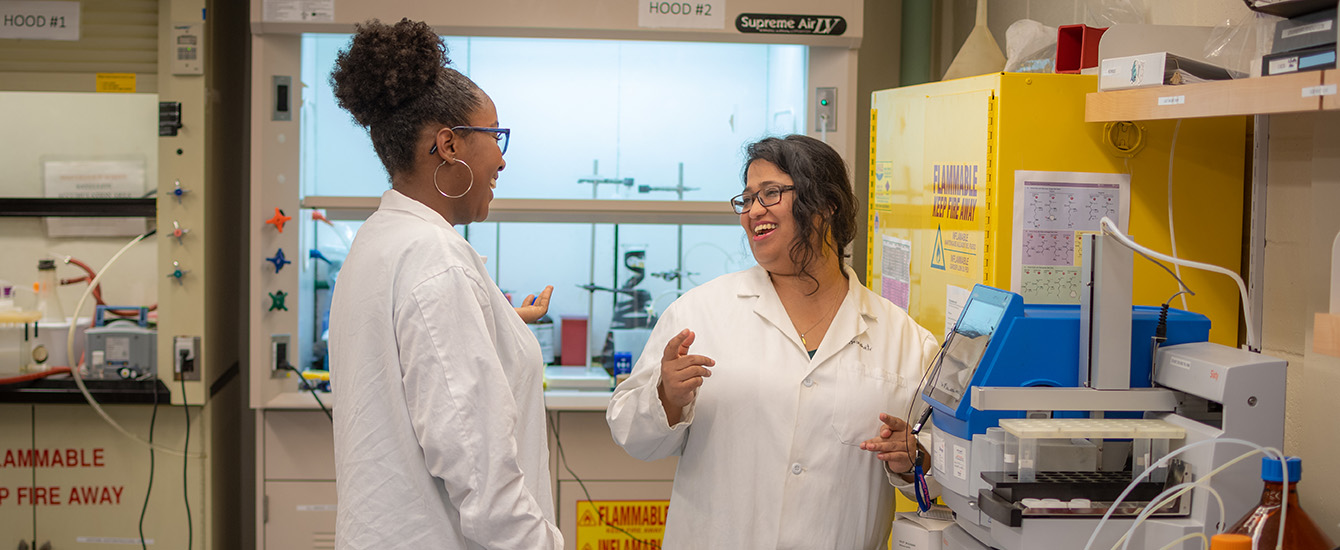Chemistry
Pyridyl-imidazole copper compounds
Document Type
Article
Abstract
Three 4-(2’-pyridyl)imidazole (4-pyim) complexes of copper(II) have been synthesized and studied structurally and magnetically. The structures of [CuCl2(4-pyim)] (1), [CuCl(4-pyim)2]2Cl2(H2O)10 (2), and [Cu(CuCl4)(4-pyim)2][Cu(H2O)(4-pyim)2](CuCl4)(H2O)4 (3) are reported. Single-crystal X-ray diffraction measurements show that 1 crystallizes in the monoclinic space group P21/n with a four-coordinate Cu(II) ion forming dimers via semi-coordinate bonds to bridging chloride ions. The structure of 1 shows the copper and chloride ions disordered over two sites. Compound 2 crystallizes in the triclinic space group P–1 with five-coordinate Cu(II) ions in a highly distorted geometry between square pyramidal and trigonal bipyramidal. It has an extensive hydrogen bonding network created by 10 lattice water molecules, chloride ions, and nitrogen atoms in the ligands. Compound 3 crystallizes in the monoclinic space group Cc with both four- and five-coordinate Cu(II) ions present in the lattice; the five-coordinate Cu(II) ions display highly distorted geometries. All three compounds have hydrogen bonding and π-stacking interactions among the 4-pyim rings. Magnetic susceptibility data were collected on 1. Magnetic susceptibility data of 1 shows that it exhibits modest antiferromagnetic interactions which are best fit using a honeycomb model [(2J = −2.6(2) K), 2J’ = −1.6(2) K, (Formula presented.) ]. Disorder in the crystal structure decreases the rate of growth of the correlation length at low temperatures, lowering the temperature of the expected maximum in χ below the range of the data. © 2023 Informa UK Limited, trading as Taylor & Francis Group.
Publication Title
Journal of Coordination Chemistry
Publication Date
1-30-2023
First Page
1
Last Page
26
DOI
10.1080/00958972.2023.2169608
Keywords
Copper(II), disorder, heterocycle, magnetism
Repository Citation
Araujo Martinez, Alma; Landee, Christopher L.; Dickie, Diane; Wikaira, Jan L.; Xiao, Fan; and Turnbull, Mark M., "Pyridyl-imidazole copper compounds" (2023). Chemistry. 2.
https://commons.clarku.edu/chemistry/2



